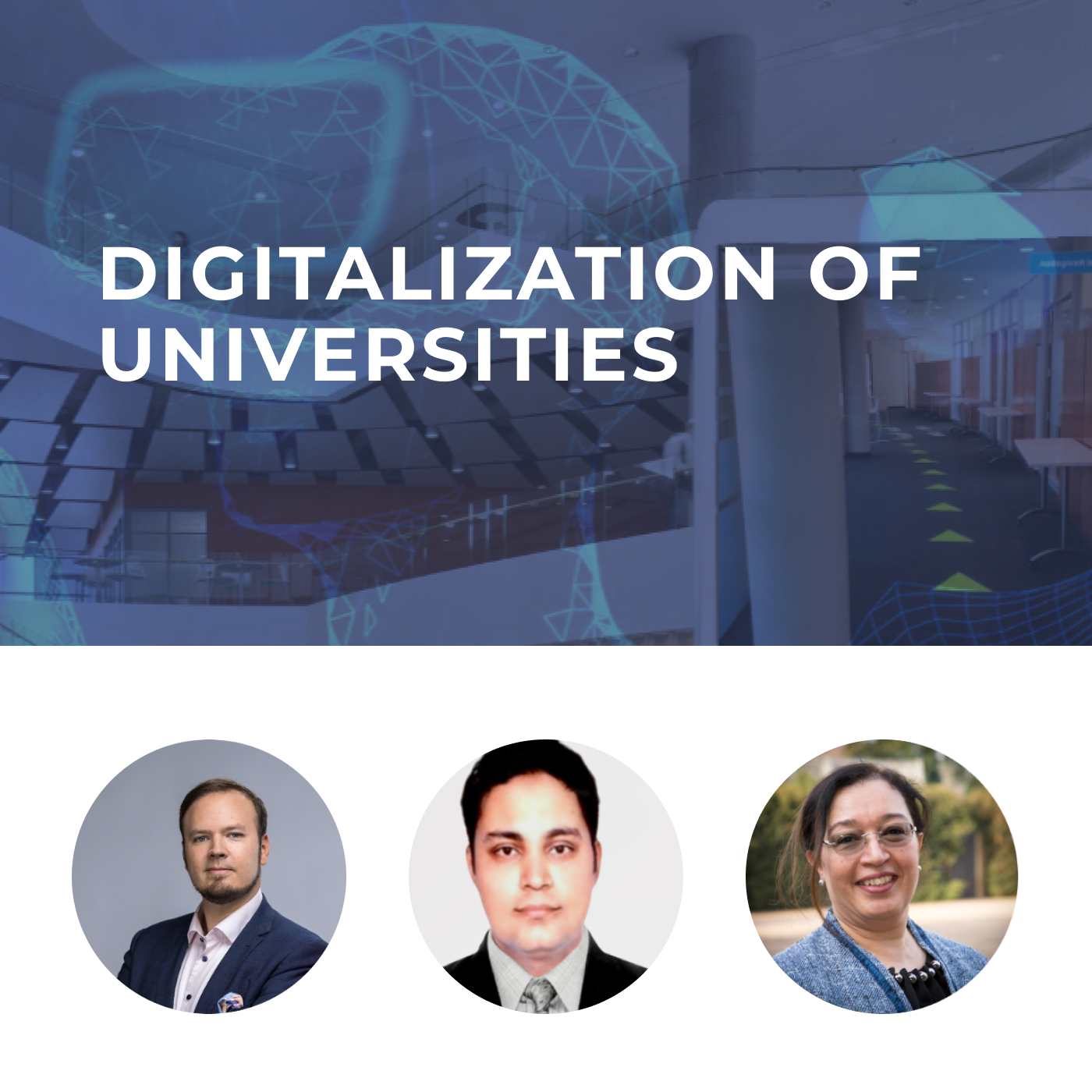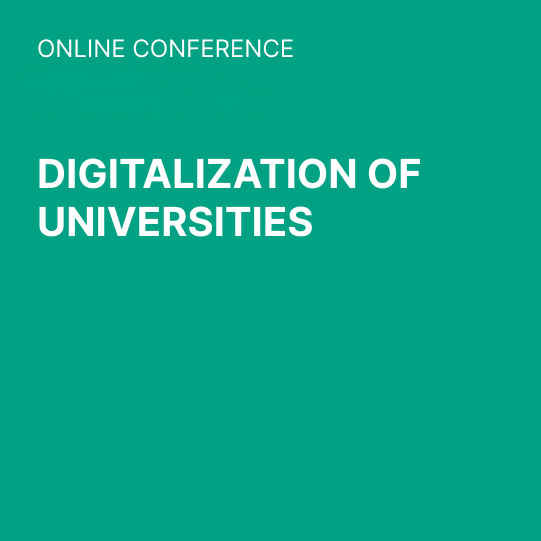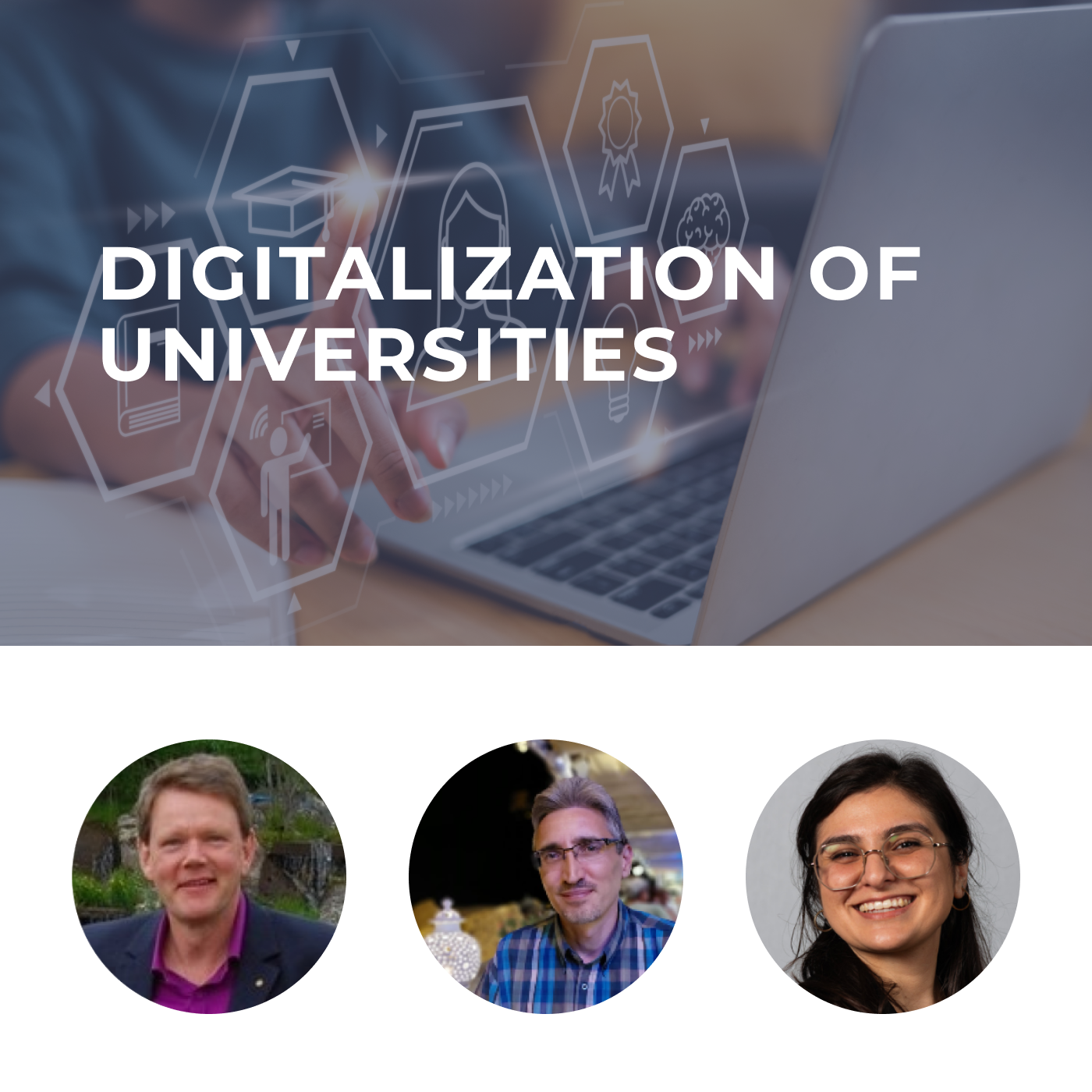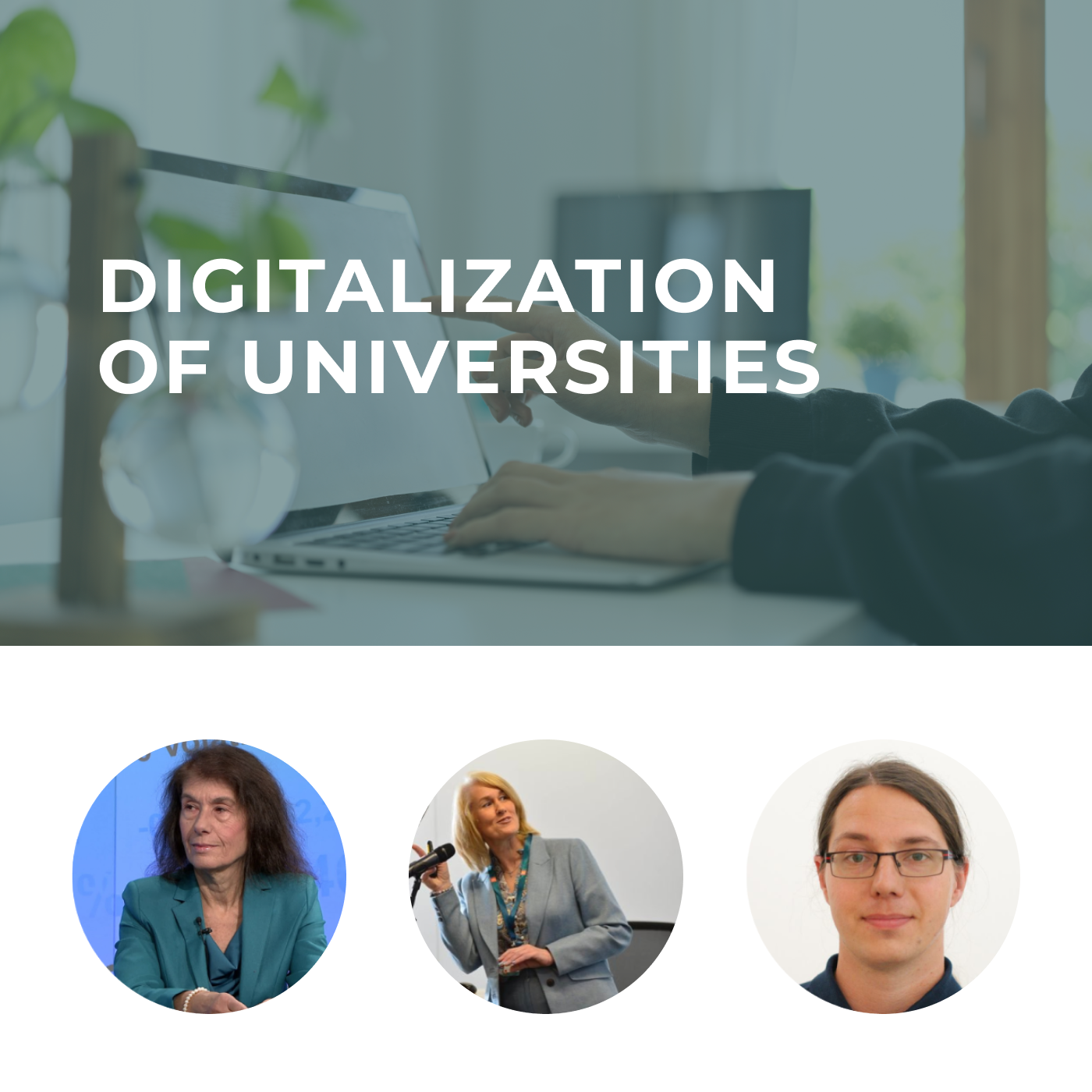April 12, 2023
Topic. Digitalization of universities
Building the campus of the future: experience of different countries. Ensuring digital accessibility compliance through inclusive design and development processes. Successful intra-institutional cooperation within universities on education, research and innovation and much more.
Speakers. Robert Salven, Dr. Nauman Ahmad, Amany Elbanna, Vincenzo Maltese, Dr. Diana Andone, Wojciech Cellary, Dr. Naciye Güliz Uğur.











